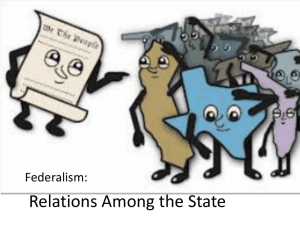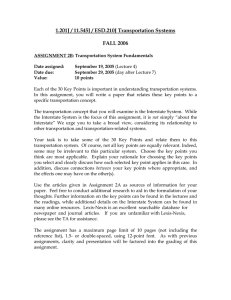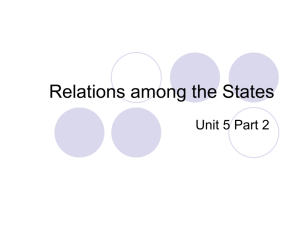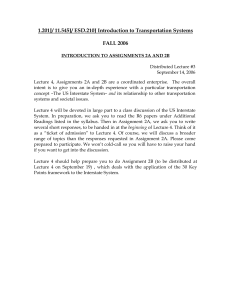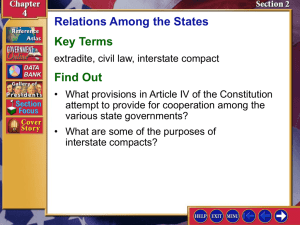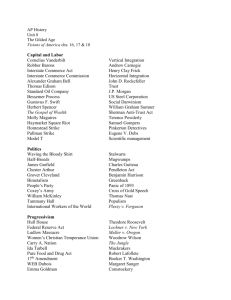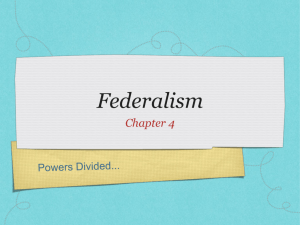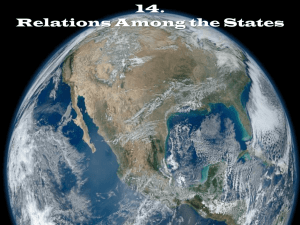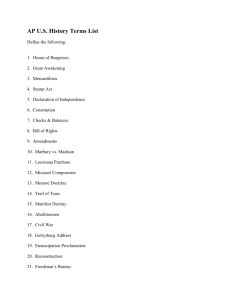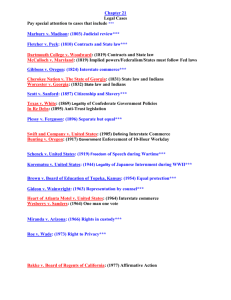U.S. Federal System: Relations Among States 1
advertisement
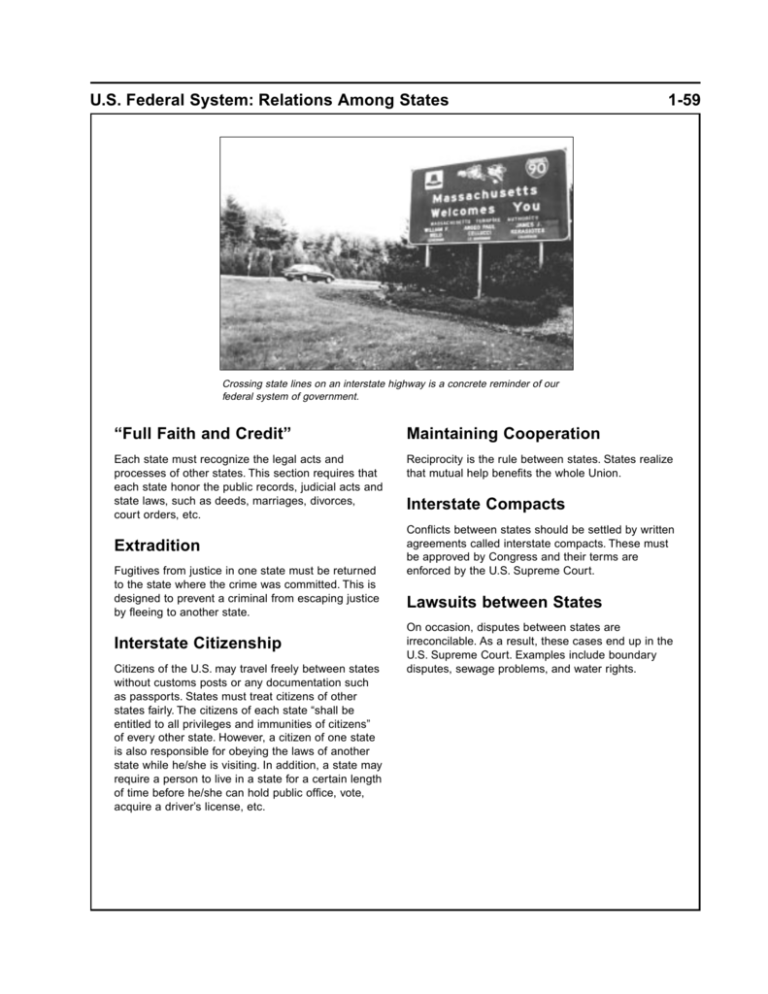
U.S. Federal System: Relations Among States 1-59 Crossing state lines on an interstate highway is a concrete reminder of our federal system of government. “Full Faith and Credit” Maintaining Cooperation Each state must recognize the legal acts and processes of other states. This section requires that each state honor the public records, judicial acts and state laws, such as deeds, marriages, divorces, court orders, etc. Reciprocity is the rule between states. States realize that mutual help benefits the whole Union. Extradition Fugitives from justice in one state must be returned to the state where the crime was committed. This is designed to prevent a criminal from escaping justice by fleeing to another state. Interstate Citizenship Citizens of the U.S. may travel freely between states without customs posts or any documentation such as passports. States must treat citizens of other states fairly. The citizens of each state “shall be entitled to all privileges and immunities of citizens” of every other state. However, a citizen of one state is also responsible for obeying the laws of another state while he/she is visiting. In addition, a state may require a person to live in a state for a certain length of time before he/she can hold public office, vote, acquire a driver’s license, etc. Interstate Compacts Conflicts between states should be settled by written agreements called interstate compacts. These must be approved by Congress and their terms are enforced by the U.S. Supreme Court. Lawsuits between States On occasion, disputes between states are irreconcilable. As a result, these cases end up in the U.S. Supreme Court. Examples include boundary disputes, sewage problems, and water rights.
